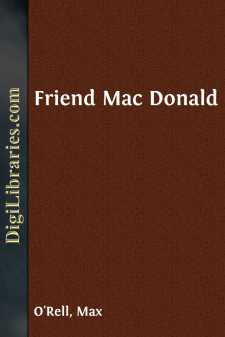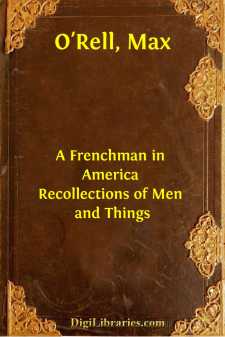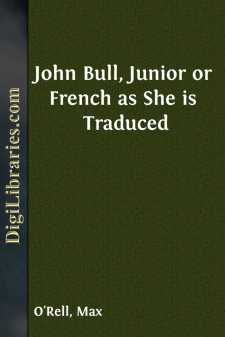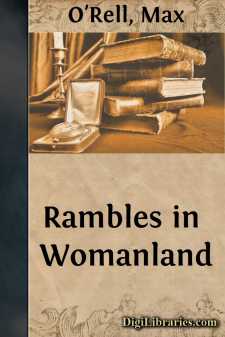Categories
- Antiques & Collectibles 13
- Architecture 36
- Art 48
- Bibles 22
- Biography & Autobiography 816
- Body, Mind & Spirit 145
- Business & Economics 28
- Children's Books 18
- Children's Fiction 14
- Computers 4
- Cooking 94
- Crafts & Hobbies 4
- Drama 346
- Education 58
- Family & Relationships 59
- Fiction 11831
- Foreign Language Study 3
- Games 19
- Gardening 17
- Health & Fitness 34
- History 1378
- House & Home 1
- Humor 147
- Juvenile Fiction 1873
- Juvenile Nonfiction 202
- Language Arts & Disciplines 89
- Law 16
- Literary Collections 686
- Literary Criticism 179
- Mathematics 13
- Medical 41
- Music 40
- Nature 179
- Non-Classifiable 1768
- Performing Arts 7
- Periodicals 1453
- Philosophy 66
- Photography 2
- Poetry 897
- Political Science 203
- Psychology 45
- Reference 154
- Religion 516
- Science 126
- Self-Help 86
- Social Science 82
- Sports & Recreation 34
- Study Aids 3
- Technology & Engineering 59
- Transportation 23
- Travel 463
- True Crime 29
Our website is made possible by displaying online advertisements to our visitors.
Please consider supporting us by disabling your ad blocker.
Friend Mac Donald
by: Max O'Rell
Description:
Excerpt
CHAPTER I.
A Word to Donald.—The Scotch Anecdote and its Character.—The Scotch painted by Themselves.
h! my dear Donald, what good stories you told me in the few months that I had the pleasure of passing with you! How you stuffed and saturated me with them!
And the English pretend that nobody laughs in Scotland!
Don't they though! and with the right sort of laughter, too: a laugh that is frank, and full of finesse and good-humour.
You will be astonished, perhaps, that a three or four months' sojourn in Scotland should permit me to write a little volume on your dear country, and you will, may be, accuse me of having visited you with the idea of seeking two hundred pages for the printer.
You would be very wrong in your impression, if you thought so.
To tell the truth, I did not take a single note in Scotland; but, on my return home, all those delicious anecdotes came back to my memory, and I could not resist the temptation of telling a few of them to my compatriots.
After all, Scotland is almost a closed letter to the French; and I thought I might make myself useful and agreeable in offering French readers a picture of the manners and character of the Caledonians.
If, in order to be a success, a book of travels must be full of the strange and the horrible, it is all up with this one. But such is not the case; and he who advanced this opinion calumniated the public.
I have as much right as anyone to contradict such an assertion; for the public has been pleased to give the kindest reception to my books on England, and I certainly never had any other aim or ambition than that of telling the truth according to Horace's principle, Ridentem dicere verum quid vetat?
Scotland is perhaps the only country whose anecdotes alone would suffice to give an exact idea of her inhabitants.
Irish anecdotes are exceedingly droll; but they only tend to show the thoughtless side of the Irish character. They are very amusing bulls; but while they divert, they do not instruct.
In Scotland, on the contrary, you find in the anecdotes a picture of the Scotch manners and character, as complete as it is faithful.
The Scot has kept the characteristics of his ancestors; but his manners have been toned down, and the language he speaks is growing more and more English: he is a changed man, and, in good society, you might be puzzled to tell him from an Englishman.
This is not a compliment, for he has no desire to pass for other than Scotch.
Among those characteristics, there are two which he has preserved intact to the present day: finesse and matter-of-fact good-humour. You will find these two traits in every grade of Scotch life—in tradesman, mechanic, and peasant.
This is why, setting aside the upper classes, the Scotch differ essentially from the English.
It is because of that good-humour that the Scot is more communicative than the Englishman. He knows his failings, and does not mind talking about them; in fact, he will give you anecdotes to illustrate them, and this because they are national, and he loves to dwell on anything which reminds him that Scotland is a nation.
I might have entitled this volume, "The Scotch painted by themselves," for I do but write down what I saw and heard. I owe the scenes of life I describe to the Scotch who enacted them before me, and the anecdotes to those who were kind enough to tell them to me.
Donald, a British subject, but no Englishman.—Opinion of the greatest English Wit on the Scotch, and the worth of that Opinion.—The Wit of Donald and the Wit of the Cockney.—Intelligence and Intellectuality.—Donald's Exterior.—Donald's Interior.—Help yourself and Heaven will help you.—An Irish and a Scotch Servant facing a Difficulty.—How a small Scotchman may make himself useful in the Hour of Danger.—Characteristics.—Donald on Train Journeys.—One Way of avoiding Tolls.
...





